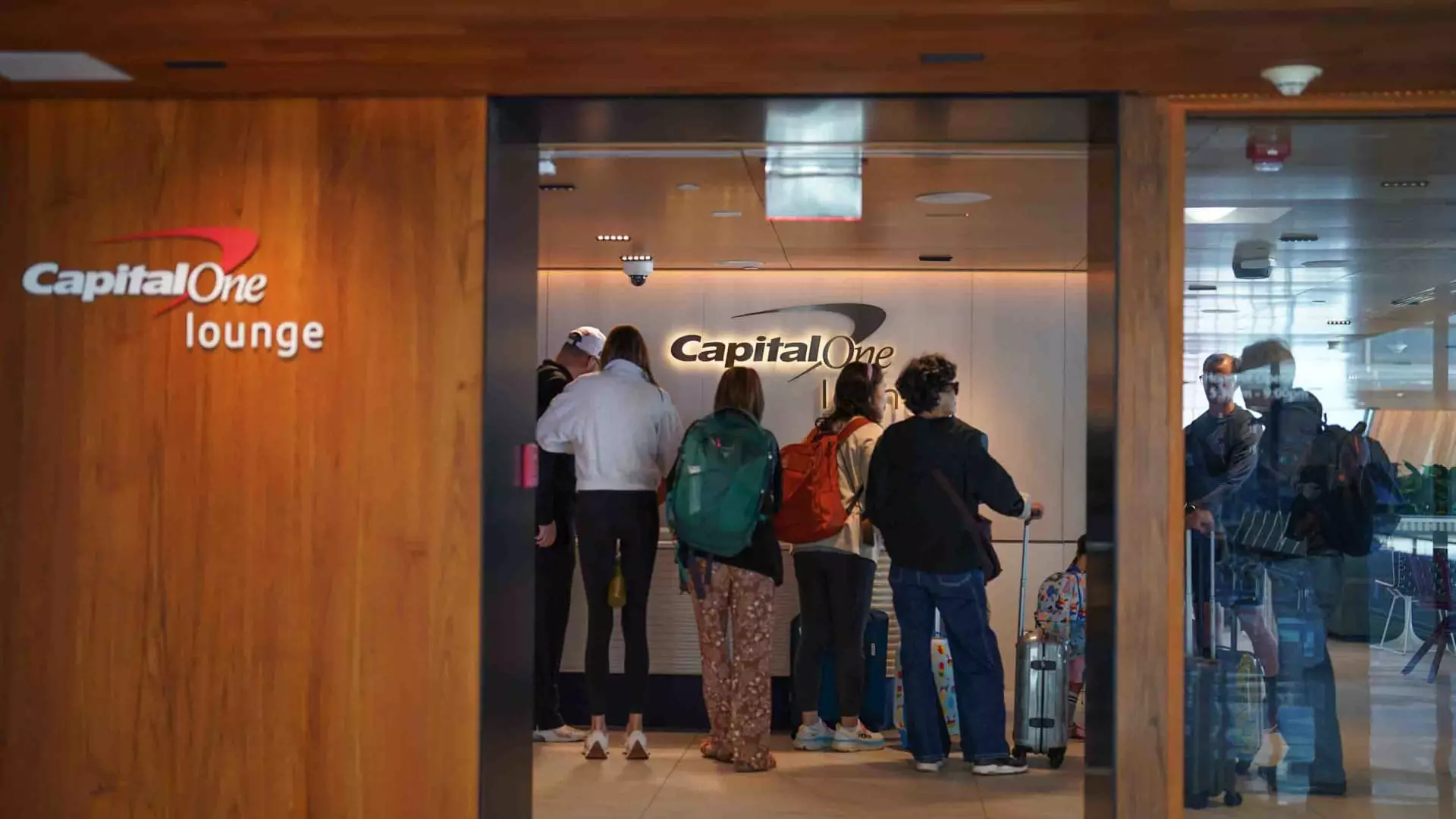As travel continues to normalize post-pandemic, the allure of airport lounges has become stronger than ever. Yet, just as airplane ticket prices have dipped, the cost of enjoying airport lounge amenities has soared. In an alarming but not surprising move, Capital One has decided to tighten its grip on lounge access for its customers, signaling a profound transformation in the travel experience for both casual and frequent flyers. While the intention behind these policies is to maintain the quality of the lounge experience, the execution reflects an unsettling trend where exclusivity comes at a steep price.
Capital One’s new regulations, set to roll out on February 1, have raised many eyebrows. The bank will rescind the privilege of complimentary guest access for Venture X and Venture X Business cardholders, now requiring an annual fee of $125 for each additional cardholder, along with charges of $45 per adult guest per visit and $25 for children under 17. These adjustments support their claim of wanting to alleviate overcrowding but raise a larger question: Is the pursuit of consumer comfort worth the added financial burden on travelers? It’s a classic case of supply and demand, where the demand for a luxurious lounge experience is starting to redefine what it means to be a “valued customer.”
Unmasking the Illusion of Affordability
With an annual fee of $395, the Venture X card offers an attractive entry point compared to its competitors like American Express and JPMorgan Chase. However, when coupled with these new limitations on guest access, it suddenly transforms from a gateway to exclusive experiences into a question mark over its actual value. The requirement for primary cardholders to spend a staggering $75,000 annually just to enjoy the company of a few friends or family members in a lounge is a bold strategy that raises eyebrows and concerns. One must wonder: Has accessibility turned into a privilege reserved for the affluent? Are we witnessing a tangible shift toward creating an elitist travel culture that stifles the average traveler?
Furthermore, Capital One’s increased spending requirements mirror initiatives put forth by American Express two years prior, positioning both companies on a similar trajectory towards limiting customer access under the guise of enhancing exclusivity. This greed-driven monopoly on luxury travel experiences is a stark departure from the initial core values of accessibility and community that many of these brands marketed themselves on. Instead, they have transformed into gatekeepers, forcing loyal customers to pay more for privileges that were once offered freely.
Is Comfort Worth the Price? The Broader Implications
Crucially, this trend is not isolated to Capital One alone. In a broader context, airlines have begun implementing similar strategies across various levels, leading to an uncomfortable but real question: Are travelers prepared to pay extra for a little comfort? Delta’s recent shift to annual caps on lounge visits has left many frequent flyers feeling alienated, pushing customers to reconsider their loyalty to airlines that once offered reliable access. The introduction of exclusive lounges for those flying in premium classes hints at a disturbing trend toward bifurcated travel, wherein the comfort of an airport lounge becomes increasingly intertwined with one’s purchasing power.
While airport lounges were once perceived as an oasis amid crowded terminals, they are increasingly becoming mere extensions of the elitist bubble that surrounds mainstream air travel. The notion of an airport lounge as a space of relaxation, comfort, and community is at risk of eroding into an exclusive domain serving only the highest spenders.
Changing access policies may strategically serve corporate interests in the short term, but they will ultimately alienate the very customer base these companies rely on. As lounges get recast into platforms for the rich rather than communal spaces for travelers, the essence of what makes air travel enjoyable could be fundamentally compromised.
In this sense, the trend is more than merely inconvenient; it raises a broader discourse on who gets to travel comfortably in today’s economy. And as corporate giants take bold steps to protect their “exclusive” offerings, it’s high time for travelers to reassess their loyalty—and question whether comfort is truly worth sacrificing community and accessibility at the boarding gate.

